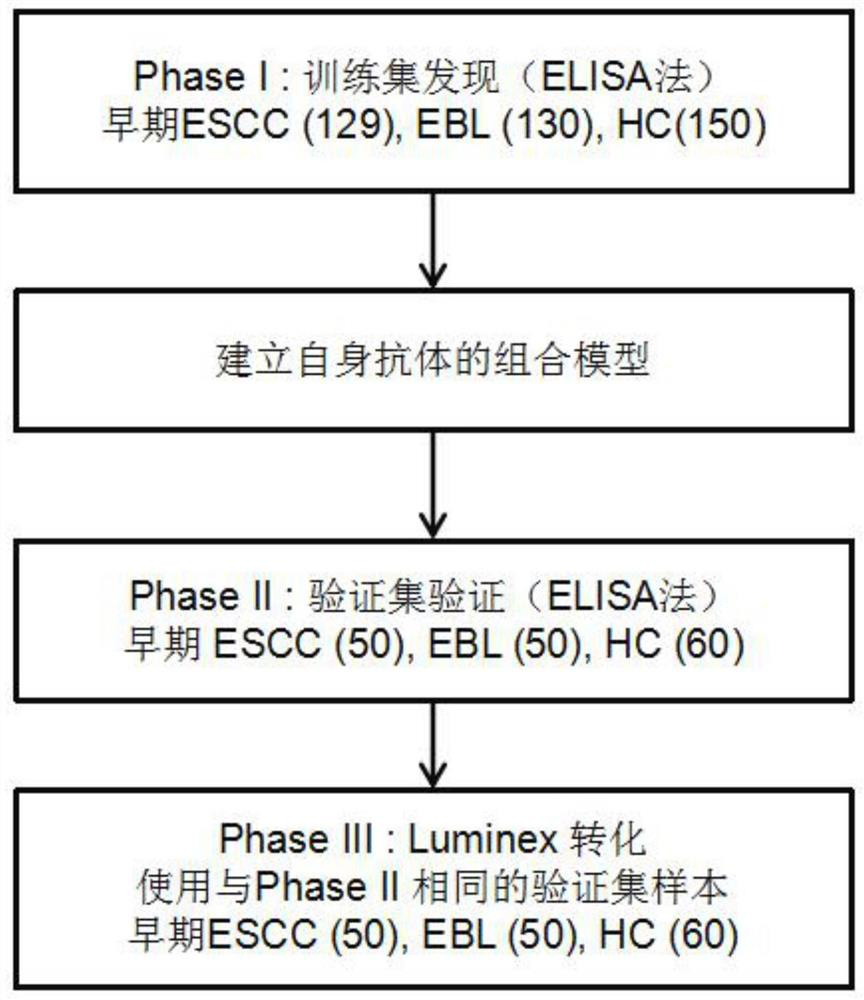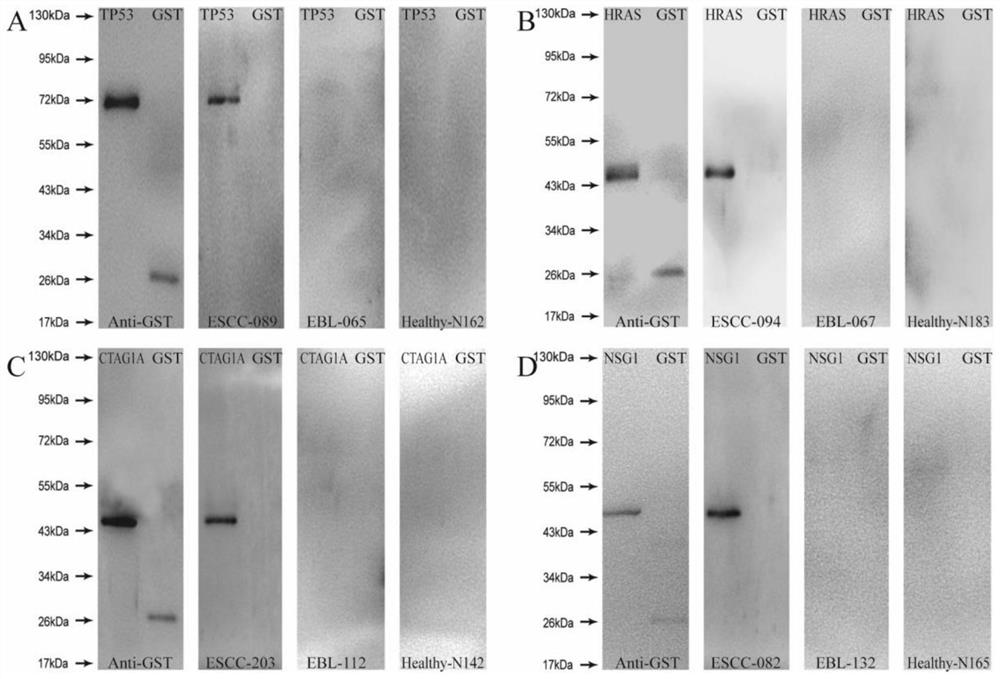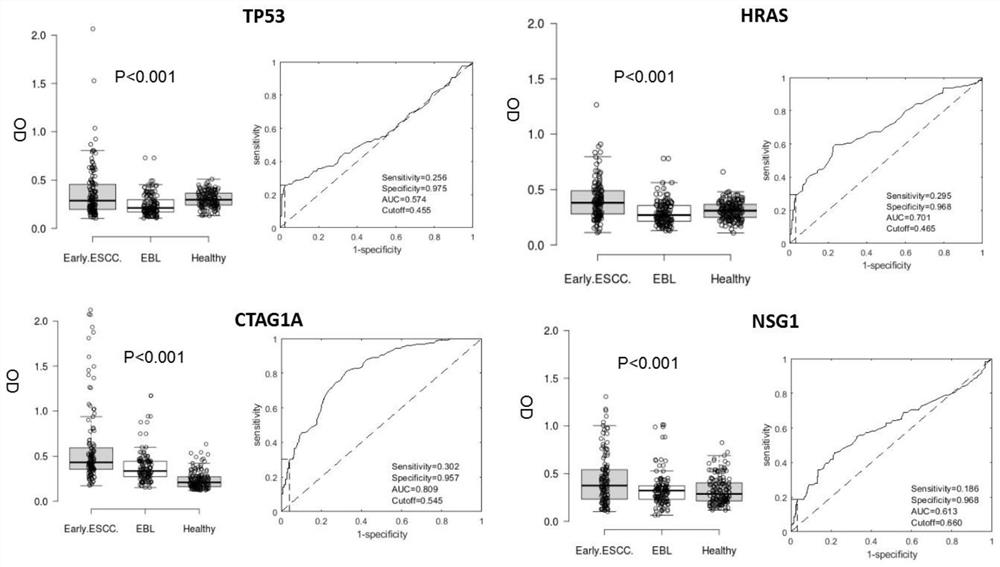A combined detection kit and application of four autoantibodies for diagnosing early esophageal squamous cell carcinoma
An autoantibody, combined detection technology, applied in the field of medical diagnosis, can solve the problems of limited clinical application value, low sensitivity and specificity, etc., to improve the quality of serological screening, high sensitivity and specificity, and promote the cure rate. Effect
- Summary
- Abstract
- Description
- Claims
- Application Information
AI Technical Summary
Problems solved by technology
Method used
Image
Examples
Embodiment 1
[0031] Example 1: Eight kinds of serum autoantibodies are tested for early diagnosis of esophageal squamous cell carcinoma (small sample)
[0032] 1 Materials and methods
[0033] 1.1 Research object
[0034] A total of 150 serum samples were collected from Fujian Provincial Hospital from March 2015 to February 2016, including 50 early ESCC patients, 50 EBL patients, and 50 HC patients. All 50 patients with early ESCC were diagnosed on the basis of endoscopy combined with cytology or histopathology. They did not receive any anti-tumor treatment such as chemotherapy and radiotherapy. The TNM classification was stage 0, I, and II. The 50 cases of EBL patients came from patients who were initially treated in Fujian Provincial Hospital during the same period, including benign esophageal tumors, benign esophageal ulcers, esophageal erosion, and reflux esophagitis. Fifty HC patients were healthy adults from the Physical Examination Center of Fujian Provincial Hospital, which did n...
Embodiment 2
[0044] Example 2: Detection of four kinds of serum autoantibodies on the early diagnosis test of esophageal squamous cell carcinoma (large sample)
[0045] Based on the results of small-sample research, the purpose of this study is to study the value of anti-TP53, HRAS, CTAG1A, and NSG1 antibody detection in the early diagnosis of ESCC in a large sample of 569 cases of serum by constructing an ELISA method. The research cohort includes 409 A training set of 160 cases and a validation set of 160 cases with independent matching.
[0046] 1 Materials and methods
[0047] 1.1 Research object
[0048] A total of 569 serum samples were collected from Fujian Provincial Hospital from February 2016 to June 2018, including 179 early ESCC patients, 180 EBL patients, and 210 HC patients. All 179 patients with early ESCC were diagnosed on the basis of endoscopy combined with cytology or histopathology. They did not receive any anti-tumor treatment such as chemotherapy and radiotherapy. T...
PUM
 Login to View More
Login to View More Abstract
Description
Claims
Application Information
 Login to View More
Login to View More - R&D
- Intellectual Property
- Life Sciences
- Materials
- Tech Scout
- Unparalleled Data Quality
- Higher Quality Content
- 60% Fewer Hallucinations
Browse by: Latest US Patents, China's latest patents, Technical Efficacy Thesaurus, Application Domain, Technology Topic, Popular Technical Reports.
© 2025 PatSnap. All rights reserved.Legal|Privacy policy|Modern Slavery Act Transparency Statement|Sitemap|About US| Contact US: help@patsnap.com



